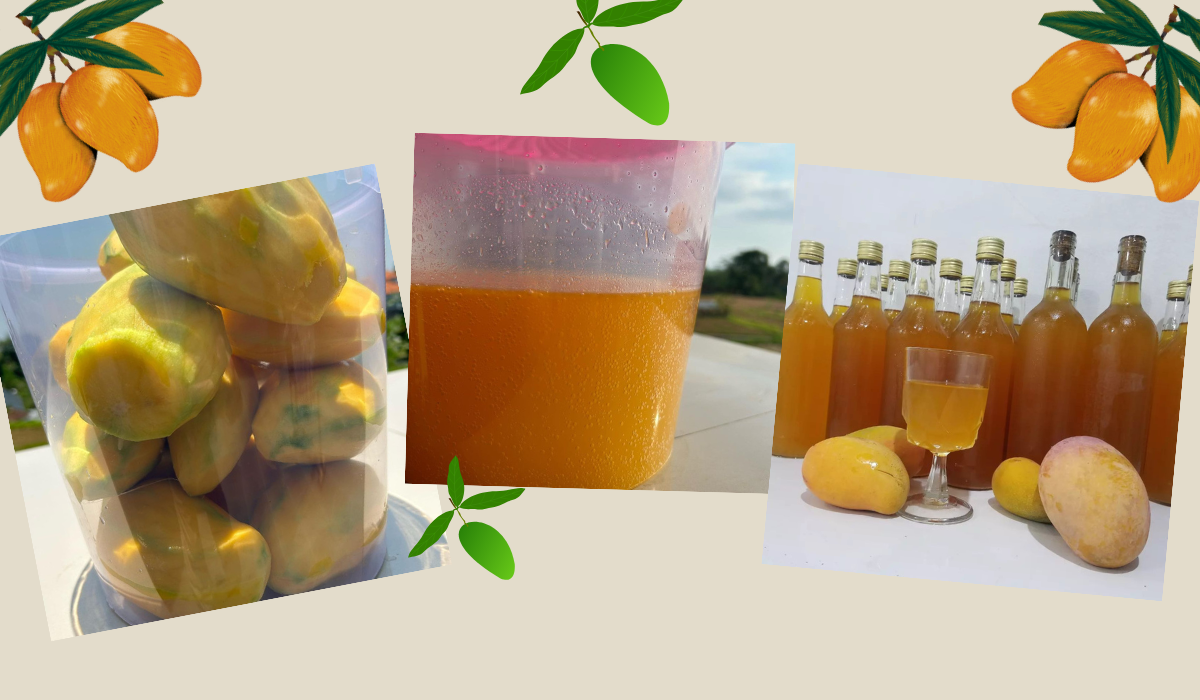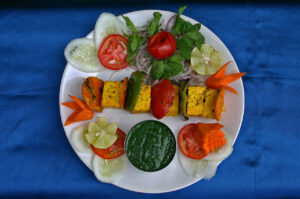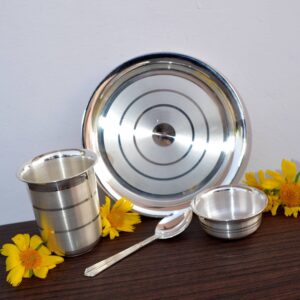Summer has arrived, bringing with it the challenges of heat waves and scorching winds, but also the delight of sweet mangoes. To enjoy this delight all year round, let’s explore the process of turning mangoes into wine(Mango Wine Homemade) and the benefits that come with it.
Mango wine Homemade process
Just like wine made from other fruits, mango wine has its own unique appeal. The selection of mangoes is crucial. Choose well-ripened mangoes, all of the same variety. Juicy mangoes will enhance the viscosity of the wine.
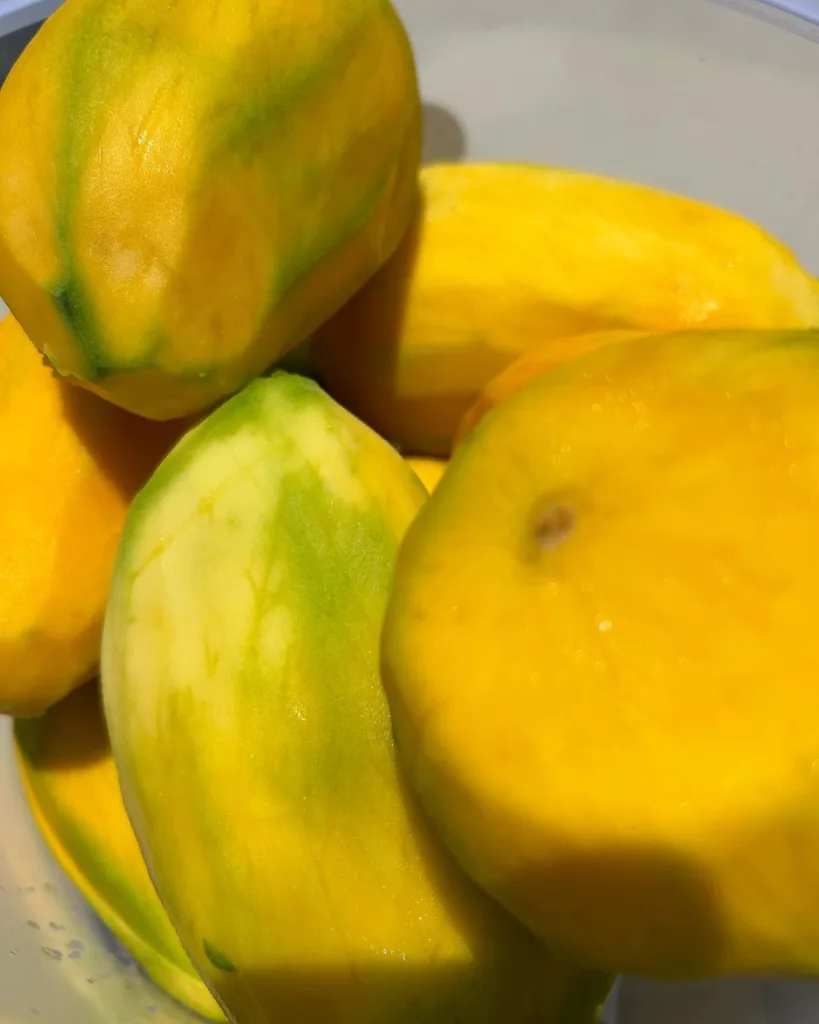
First, thoroughly wash the mangoes. Use sturdy plastic containers, similar to those used for pickling. Extract the mango pulp and place it in the container. Add some water and blend it in a mixer for more yield. For 4 kg of mango pulp, add 6 liters of water. Add wine yeast for fermentation. For sweetness, add sugar; typically, 1.5 kg of sugar is used for 4 kg of mangoes, but you can adjust to taste. Mix everything well, cover the container with a cloth to prevent air from entering, and leave it for 24 hours.
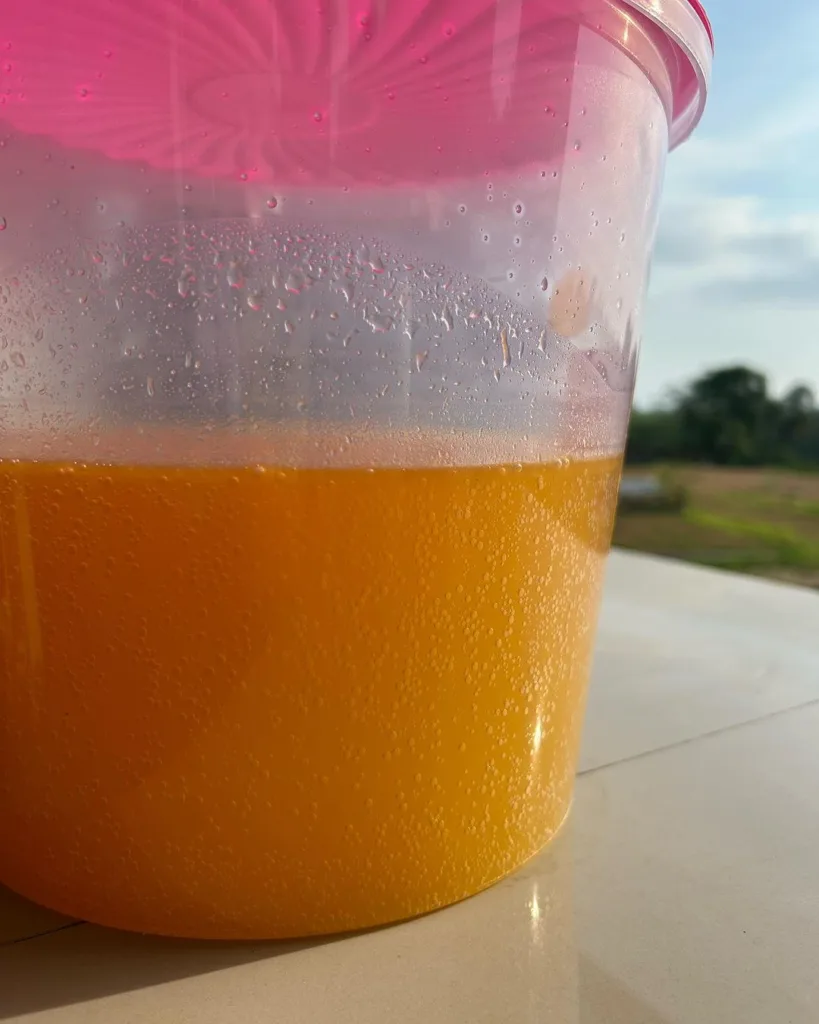
After 24 hours, open the container, stir well, and then cover it again. Let it sit for another week. During this time, prepare glass bottles for storage by cleaning and drying them thoroughly to ensure there is no moisture. After a week, open the container, stir again, and let it sit for another 21 days. After this period, strain the wine using a dry,(Mango Wine Homemade) clean cotton cloth. Discard the mango pulp and store the strained wine in glass bottles.
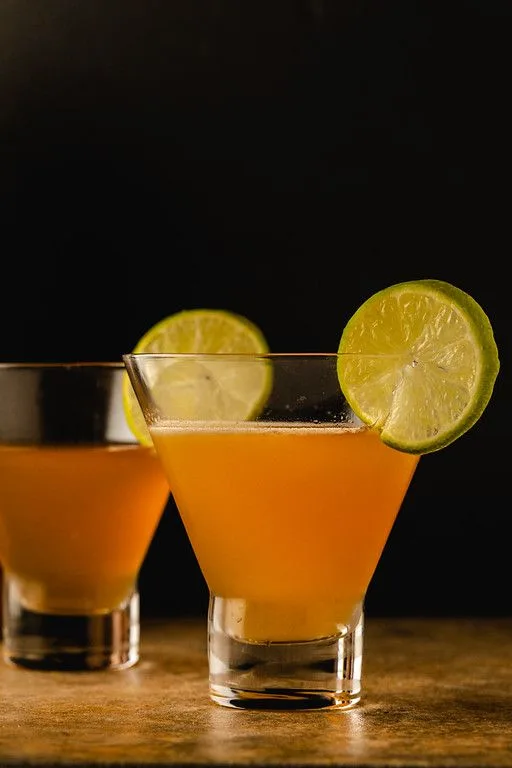
Does Homemade Wine Taste Different?
Yes, homemade wine tastes different from commercially produced wine. However, experts say there is no significant difference in nutritional and health benefits. Consuming mangoes reduces infections, and mango wine provides similar benefits,(Mango Wine Homemade) improving digestion as well. While commercial wines improve with age, this homemade wine achieves good quality within 3-4 months. Experts suggest that mango wine offers good quality at a low cost.
Best Pairing with Mango Wine
Veg Snacks
Mango wine pairs best with salty and spicy raw mango slices. The aroma and kick of the wine combined with these slices create an excellent taste. If raw mangoes are unavailable, any fruit salad of your choice can be paired with mango wine, as long as the fruits are not too overpowering. This ensures the wine’s taste remains dominant.
Samosas: These triangular pastries filled with spiced potatoes, peas, and sometimes paneer, offer a delightful crunch and a burst of flavor, pairing well with the clean taste of mango wine, especially when served with a tangy tamarind chutney
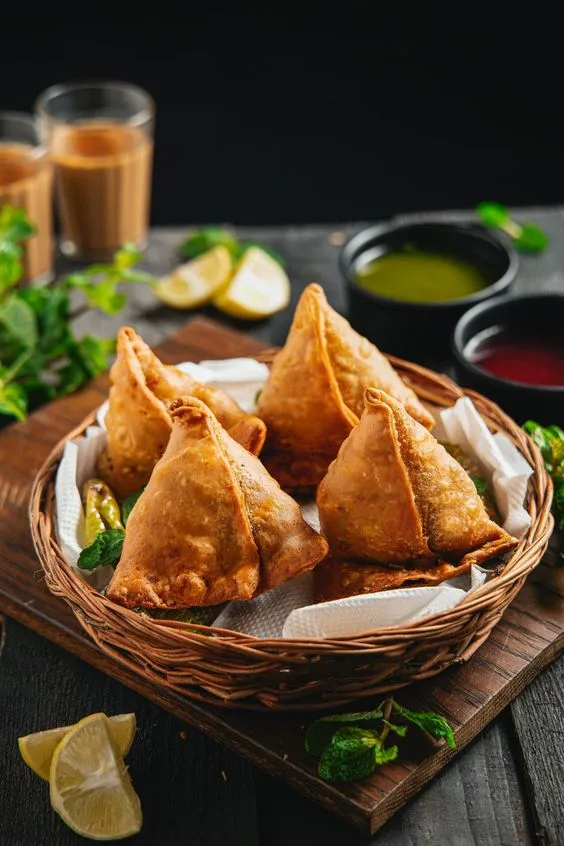
Paneer Tikka: Cubes of paneer marinated in spices and grilled until slightly charred can be a wonderful vegetarian option. The smoky, spicy flavors of the paneer are a great match for the Mango wine
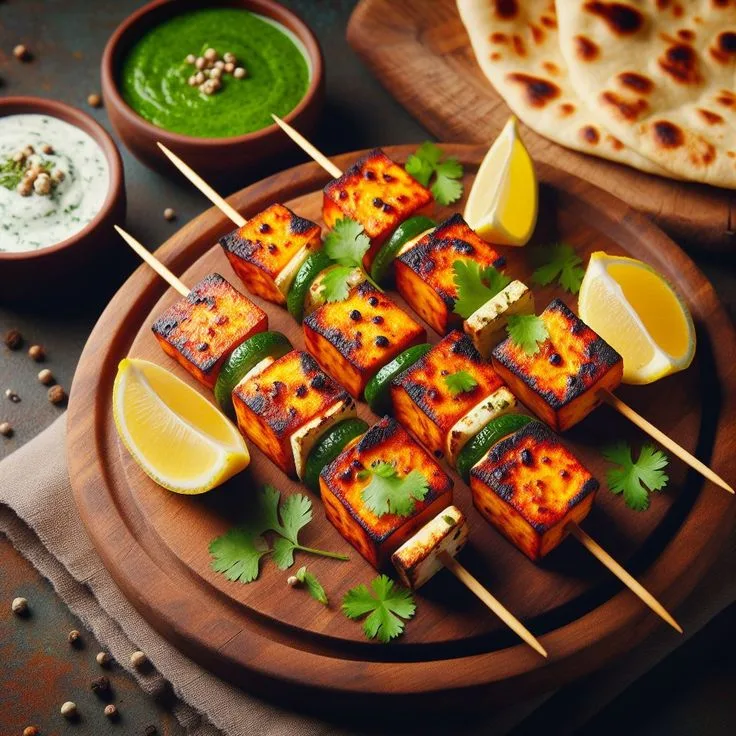
Aloo Tikki: Spiced mashed potato patties fried until golden and served with a side of green and tamarind chutneys offer a lovely texture and flavor contrast with Mango wine, making for a satisfying snack.
Bhel Puri: A puffed rice dish with potatoes, onions, spices, and tangy tamarind sauce. Its mix of sweet, spicy, and sour flavors pairs well with Mango wine.
Dahi Puri: Small puris filled with potatoes, chickpeas, yogurt, and chutneys. The cooling yogurt contrasts nicely with the Mango Wine.
Gobi Manchurian: Cauliflower florets fried and tossed in a tangy, spicy Indo-Chinese sauce. This dish’s bold flavors are a great match for the neutral profile of Mango Wine.
Masala Papad: Crisp papadums topped with onions, tomatoes, cilantro, and spices. A light snack that complements the smoothness of Mango Wine without overwhelming it.
Mushroom Tikka: Marinated and grilled mushrooms, perfect for those seeking a meaty texture with vegetarian ingredients, pair well with Mango Wine flavors.
Non Veg Snacks
Now that you know how to make wine and what to pair it with, head to the market, buy some good mangoes, and prepare your own pure wine. Naturally made wine contains no more than 7.7% alcohol, according to experts, which means a lower chance of a hangover. Enjoy the kick along with health benefits.
- Chicken 65: Deep-fried spicy chicken bites tempered with curry leaves and mustard seeds provide a fiery kick that mango wine can cool down, creating a balanced taste experience. This dish pairs particularly well with a chilled, clean mango wine.
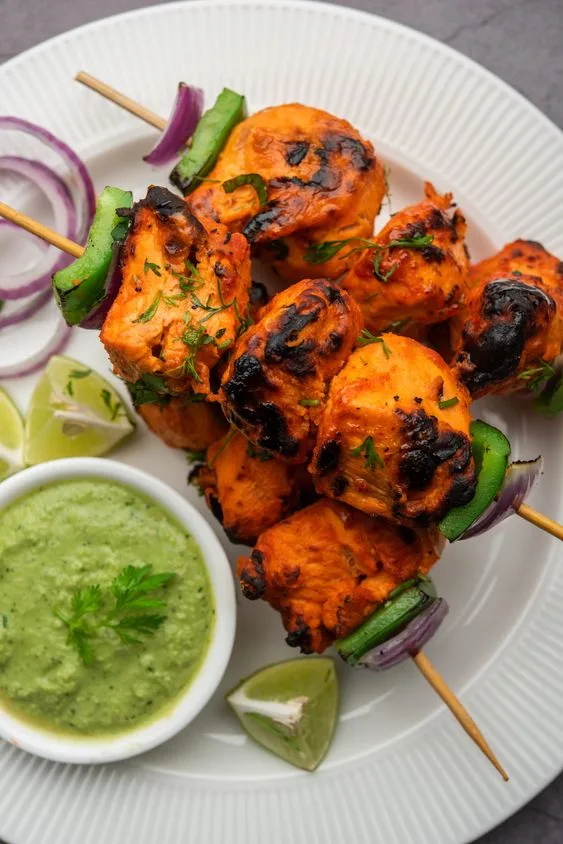
- Lamb Seekh Kebabs: Minced lamb mixed with herbs and spices, then grilled on skewers, these kebabs are juicy and flavorful. They pair beautifully with robust mango wine flavors, offering a hearty snack option.
- Fish Amritsari: Battered and fried fish seasoned with carom seeds and spices, this delicacy from Amritsar is tangy and crisp, making it an excellent companion for the subtle flavors of mango wine, particularly enhancing citrus-infused mango wine varieties.
- Mutton Galouti Kebab: Melt-in-your-mouth kebabs made with finely minced mutton, spices, and cooked on a tawa. These kebabs’ rich flavors harmonize with the clean taste of mango wine, especially when served with mint chutney.
- Prawn Tandoori: Marinated prawns grilled to perfection. The smokiness and slight char on the prawns bring out the best in smooth mango wines.
- Chicken Malai Tikka: Chicken pieces marinated in cream, cheese, and spices, then grilled. The creaminess of this dish beautifully counters the crispness of mango wine.
- Fish Tikka: Bite-sized fish pieces marinated in spices and grilled. The light, flaky texture and subtle spices pair excellently with a chilled glass of mango wine.
- Kerala Beef Fry: Beef marinated in a mixture of Kerala spices and fried with coconut slices. The robust flavors of the beef can stand up to the boldness of a good mango wine, making for a satisfying snack
Benefits of Mango Wine
Rich in Nutrients:
Many of the vital vitamins and minerals that are present in fresh mangoes are also present in mango wine, such as vitamins A, C, and E, which are good for the immune system, skin health, and general well-being.
Antioxidant Properties:
Antioxidants found in mango wine assist the body fight oxidative stress and lower the risk of chronic illnesses by scavenging dangerous free radicals.
Digestive Health:
Mangoes include enzymes called amylases that aid in better digestion and food breakdown. Thus, mango wine can promote healthier digestion and guard against digestive issues.
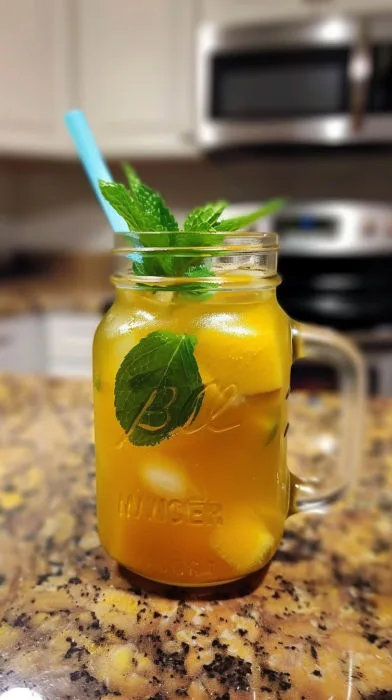
Improved Immunity:
Mango wine’s high vitamin C concentration strengthens the immune system, making it easier for the body to fend off infections and illnesses.
Heart Health:
Mangoes include magnesium and potassium, both of which are good for the heart. They promote general cardiovascular health, help control blood pressure, and keep the heart rhythm in a healthy range.
Anti-Inflammatory Benefits:
Mango wine has anti-inflammatory properties that make it effective for treating inflammatory diseases like arthritis.
Skin Health:
Mango wine contains vitamins and antioxidants that promote the formation of collagen, reduce indications of ageing, and shield the skin from UV rays, all of which lead to better skin.
Mood Enhancement:
Moderate consumption of mango wine can have relaxing effects, helping to reduce stress and improve mood due to its alcohol content combined with the natural compounds found in mangoes.
Bone Health:
Mangoes’ calcium and vitamin K promote bone health and help to maintain strong, healthy bones.
Hydration:
Mango wine, when consumed in moderation, can contribute to overall hydration due to its water content and the natural hydration benefits of mangoes.
Recall that even though mango wine offers a number of health advantages, it should only be savoured in moderation in order to minimise any potential risks related to alcohol intake.
If you Want More Wines ClicK here
FAQ- Mango Wine
How is mango wine made?
Mango wine is made by fermenting mango juice with water, sugar, and wine yeast. The process involves several steps, including cleaning and mashing the mangoes, adding water and sugar, fermenting with yeast, and aging the wine to enhance its flavor.
What types of mangoes are best for making mango wine?
The best mangoes for making wine are those that are fully ripe and juicy. Varieties with a high sugar content and rich flavor, such as Alphonso or Haden mangoes, are particularly suitable.
Can I make mango wine at home?
Yes, mango wine can be made at home with the right ingredients and equipment. The process requires ripe mangoes, water, sugar, wine yeast, and fermentation containers. It’s important to follow a detailed recipe to ensure the best results.
How long does it take to make mango wine?
The entire process of making mango wine, from initial preparation to final bottling, typically takes about 4-6 weeks. This includes the primary fermentation, secondary fermentation, and aging periods.
What are the health benefits of mango wine?
Mango wine offers several health benefits, including being rich in vitamins A, C, and E, containing antioxidants, aiding in digestion, boosting immunity, supporting heart health, reducing inflammation, and promoting skin health. However, it should be consumed in moderation.
What is the alcohol content of mango wine?
The alcohol content of homemade mango wine typically ranges from 7-12%, depending on the amount of sugar added and the fermentation process. It’s important to measure and control the fermentation to achieve the desired alcohol level.
How should mango wine be stored?
Mango wine should be stored in a cool, dark place, preferably in glass bottles. Proper storage helps preserve the wine’s flavor and quality. Once opened, it should be refrigerated and consumed within a few days.
Can mango wine spoil?
Yes, like all wines, mango wine can spoil if not stored properly. Signs of spoilage include off smells, unusual flavors, and cloudiness. Proper sanitation during the making process and appropriate storage conditions can help prevent spoilage.
What foods pair well with mango wine?
Mango wine pairs well with a variety of foods, including spicy dishes, seafood, light salads, and desserts. Its sweet and fruity flavor complements both savory and sweet dishes, making it a versatile choice for pairing.
Are there any special considerations for making mango wine?
When making mango wine, it’s important to use clean and sanitized equipment to avoid contamination. Additionally, the sugar content can be adjusted to taste, but be mindful that higher sugar levels can increase the alcohol content. Experimenting with different spices or herbs can also add unique flavors to the wine.
Can mango wine be used in cooking?
Yes, mango wine can be used in cooking to add a fruity and slightly alcoholic flavor to dishes. It works well in marinades, sauces, and desserts, adding a unique twist to various recipes.
